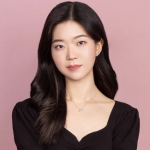Charli Jin
Charli Jin (MSJ21)
Journalist at The New York Times

Tell us about your career path. How did you get where you are today?
I knew maybe from the age of seven that I wanted to be a journalist because of my love for writing, my inquisitive nature, my drive to find and share the truth... and the fact that my dad was a journalist 20 years ago. I joined every publication that was looking for writers all throughout grade school. Naturally that led to my pursuing journalism and the media in university and grad school and taking multiple internship and freelance opportunities in the industry.
What are your main responsibilities in your current role?
I cover breaking and/or major news in South Korea, but also write feature stories on the nation’s culture, people and society. Because the Times is a global newsroom, if breaking events occur in the U.S., Europe or other parts of Asia, I join the paper’s live team.
How has your Medill training helped you in your career?
Medill gave me essential skills that I use in my day-to-day tasks. From the technical aspects of understanding journalism jargon, to the soft skills like interviewing victims of tragedy, my time at Medill gave me a leg up in understanding how a newsroom works. Classes covered a wide array of skills including the basics of daily news stories (as taught by the wonderful Professor Jon Marshall) and feature length pieces for magazine (by the likes of Dean Charles Whitaker, Professor Alison Goldman).
I also have learned through work experience that newsrooms are looking for not only writers, but also video editors and social media managers. By learning to edit video for broadcast and short form content (by Professor Craig Duff) I can contribute to my workplace as not just a writer but also for multi-media reports.
How has the Northwestern Medill network helped you advance in your career?
When I began my job search (primarily in South Korea because the pandemic had ruled out the option of moving abroad), I had very little resources as to what the job market for foreign news outlets looked like. Several of my professors at Medill connected me to former students who were based in Seoul and working in the field. I was able to use the connections to gain insight on the job market prospects as well as how they enjoyed working.
How can your industry be more inclusive and representative of society?
Often, newsrooms and media companies will report on people of high profile or impact while leaving out the voices of the marginalized. This could be for several reasons including a lack of resources or time, but in any case, I am still seeing cases of the media leaning for flashier, more dramatic stories. I believe that the industry as a whole could be better utilized to give more opportunities for groups who more often get swept under the rug.
How have your identities influenced the way you navigate your professional career?
As a Korean-Canadian, my knowledge of the South Korean culture and language were key factors, I believe, in landing me my current job. While even a few years ago I didn’t find in me a competitive edge over other potential job candidates, leaning into what made up my identity actually became one of my distinguishing attributes.
What advice do you have for someone considering Medill?
I would love for anyone considering Medill to take that leap of faith and enroll. Not only did I learn the foundations of journalism, I also got to meet many wonderful people both in my personal and work life. Medill also opened my eyes to different types of jobs in the industry, many of which I had never heard of before.

